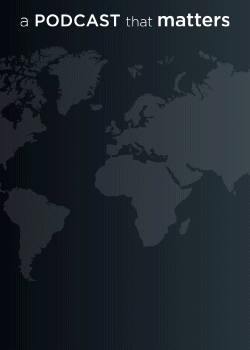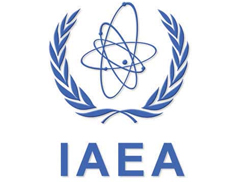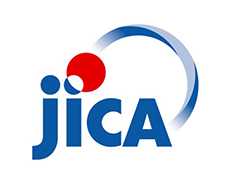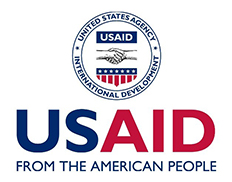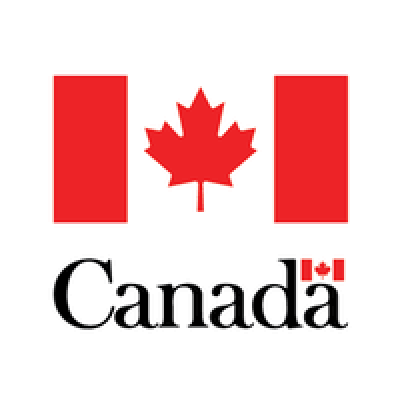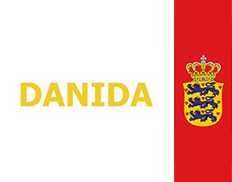
Evaluation of the First Phase of the Democratic Governance Facility (2011-2016)
Details
Associated tenders • 0
Status
Date
Description
Evaluation of the First Phase of the Democratic Governance Facility (2011-2016) - Uganda
Background: The DGF is a multi-donor fund for support to civil society and government/semi-government institutions with the objective of strengthening democratisation, protection of human rights, access to justice, peaceful co-existence and accountability in Uganda. The DGF has a total budget of app. EURO 100 million and is funded by eight development partners (Denmark, Sweden, Norway, Ireland, UK, the Netherlands, Austria and the EU). The DGF is managed by a Programme Management Unit handling support to 89 partners implementing activities along three tracks: 1) Deepening Democracy with a focus on political parties, Parliament, electoral support, media and democratisation processes in general; 2) Rights, Justice and Peace with a focus on strengthening the promotion and protection of human rights, improvement of access to justice, and promotion of peace and reconciliation; 3) Voice and Accountability with a focus on strengthening national and local accountability networks, strengthening accountability leading to improved service delivery in northern Uganda, and improving accountability and transparency relating to oil extraction and management.
During implementation, the programme’s operating context has changed rapidly, requiring DGF to adapt and respond to these changes – some of which have been shaped by the engagement of DGF’s implementing partners. As a Facility, DGF has sought to empower and build the capacity of its implementing partners to support citizen participation and strengthen institutions. The receptivity of state institutions to civic engagement has evolved over the lifetime of the programme – in part related to the electoral cycle, but also related to the wider economic development context. As such, DGF’s flexible approach has been critical to identify opportunities and adapt its priorities and methods of engagement.
The evaluation will need to closely analyse and reflect on the political economy within which DGF operated, and the evaluation team will need to ensure it has breadth and depth in the use of political economy analysis, as well as a thorough knowledge of Uganda’s political history and current developments.
Purpose and objectives: The purpose is to undertake an independent, systematic and objective evaluation of DGF, reflecting on progress towards the expected programme outcome; its effectiveness and efficiency in implementation; sustainability of results realized and lessons learned from this phase.
The objectives of the evaluation are: To assess the results delivered against each component, reflecting on the evidence of attribution at both the output level and from the component level to the outcome. The evaluation should consider the factors supporting and limiting the delivery of results, and set the results and lessons learned against comparative experience of delivering success in similar operating contexts.
To assess the programmatic complementarity of and conceptual logic behind the five thematic DGF areas of intervention (democracy, human rights, access to justice, accountability and peace and reconciliation). This assessment should focus on whether the DGF is more than the sum of its many programmatic parts.
To consider how DGF has responded to changing demands and circumstances and how it has shaped civic and political space in Uganda. The evaluation should consider whether DGF’s theory of change holds true, and whether its governance structure and approach have enabled its impact, efficiency and effectiveness.
Clearly identify and elucidate with reasons the five thematic areas of intervention and corresponding partnerships that have provided best value for money and delivered results in DGF 1, flagging those that could be prioritised for support in DGF 2 while suggesting what thematic areas and consequently what partnerships to disengage from under DGF 2.
To provide an evidence base for donors’ performance reviews of the DGF 1 and extension, and to serve as a platform for the design of DGF 2. Lessons learned and recommendations for the next phase should be clearly documented. These will be presented to Implementing Partners and other stakeholders at the DGF Partnership Conference in December 2016.
Methodology: The Evaluation team, in its inception report, should set out the primary data sources, survey data, evaluation and reviews that will inform the DGF evaluation. It should set out an approach for use of quantitative and qualitative data and a final set of evaluation questions. The inception report should be delivered within two weeks of the contract start date.
The team is expected to draw on a range of tools and approaches (set out in the inception report) to deliver the final report. This could include: desk and literature reviews; interviews with key stakeholders (donor, Government, civil society, beneficiaries); surveys of partners and beneficiaries (with criteria for selection to ensure representativeness and balance); and field work. There is an expectation that the evaluation will be consultative and participatory in approach.
A preliminary report of initial findings and recommendations should be submitted to the DGF Steering Committee within four weeks of the inception report, and a presentation made to the SC a week later.
A final report of no more than 40 pages, excluding the Executive Summary (maximum 3 pages) and annexes should be submitted within two weeks of the presentation.
A customized report especially of key achievements and lessons learned presentation for the DGF Partnership Conference.
Evaluation Team: The evaluation will be conducted by a team with skills covering Uganda’s political economy, democratic governance (in Uganda and beyond), human rights, accountability, evaluation and results-based management, as well as organisational development. The team will have adequate substantive competence within the areas covered by the three thematic components, as well as concerning financial and programme management. It will preferably be composed of both national and international consultants.
Review team members will include, but not be limited to, the following 4 positions which will be analysed as part of the proposal evaluation process (Key Staff, cf DANIDA ‘Standard Request for Proposals for Consultancy Services’). Any other members proposed as part of the team will be reviewed as part of the methodology.
Team Leader: The team leader will participate in all phases of the review and be responsible for drafting the Review Report. The team leader will have relevant advanced academic qualifications and a long, proven track record of leading the successful completion of similar assignments, preferably in Uganda or comparable operating environments. The Team Leader should have a proven track record of understanding and responding to the political economy within which programmes operate.
Senior Governance Expert: A senior governance expert, with specialisations in democracy, human rights and/or accountability, will deputise the team leader and participate in key phases of the review, particularly concerning the assessment of the DGF’s programming. The senior governance expert will have advanced academic qualifications in his/her field of specialisation and substantial experience in carrying out evaluations in the field of democratic governance, preferably in the Uganda or comparable operating environments.
Evaluation and Results Specialist: One Evaluation and Results Specialist. Assess extent to which the strategic direction and objectives of the programme are still valid. Assess consistence of the activities and outputs of the programme with the overall goal and intended impact. Clarify assumptions that undergird the Theory of Change. Assess the extent to which programme objectives were achieved, including for purposes of sharing lessons learned, documenting good practices and identifying ‘lessons’ to improve programme delivery, monitoring and evaluation. Use lessons learnt information to support and shape future strategy, communicating key trends and recommendations. The Evaluation and Results Specialist will make appropriate use of standard evaluation guidance criteria e.g. OECD, DAC.
Organisation Development (OD) Specialist: One OD specialist required. An Organisation Development qualification or equivalent professional knowledge gained through the significant experience working as an OD specialist or as an HR generalist with an OD focus. Assess business/function specific to DGF organisation design, structure, and processes to enhance both operating effectiveness and productivity. Propose OD that improves processes, management structure and accountabilities with the ultimate goal to optimise the deployment of internal resources to maximise impact and achieve results. Develop an Organisational Impact and Risk Assessment with detailed plans for mitigation of operational risks.
Budget and timeframe:
- The overall maximum budget for the assignment is DKK 900.000.
- A total of 110 consultancy days have been allocated for the assignment.
Deadline for Proposals: 4 May 2016, 12.00 noon, Danish time
Contact the Programme Officer at the contact point below to receive the Request for Proposal. Proposals received after the deadline shall be rejected.
Contact point: Royal Danish Embassy, Kampala
Name of Programme Officer: Mads Mayerhofer
E-mail address of Programme Officer: madmay@um.dk
Telephone of Programme Officer: +256 312263211
Criteria for Award of Contract: As stated in the Request for Proposal

